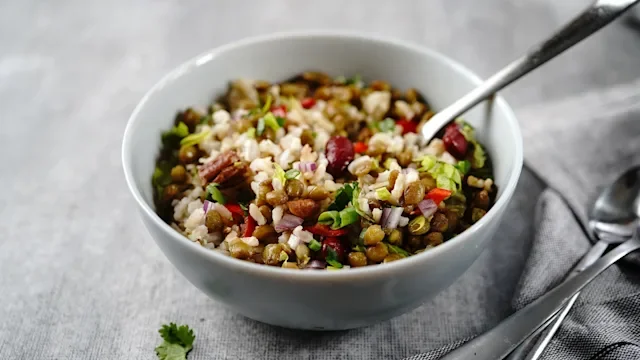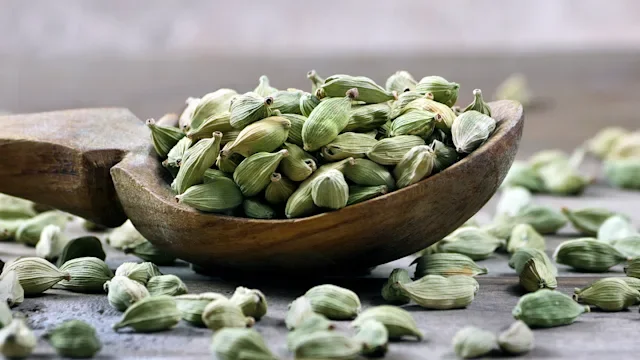Key takeaways:
Olives and olive oil contain beneficial compounds, like polyphenols and monounsaturated fat. These can protect your cells from damage and decrease inflammation.
There’s a lot of research on the health benefits of olive oil. It has been shown to be good for your heart, brain, joints, and metabolism.
Olives may provide health benefits similar to olive oil, but there’s less research on them. Olives also contain higher amounts of salt, which isn’t always good for your heart.
You’ve probably heard about the health benefits of olive oil. It’s a key part of the Mediterranean diet, which has been shown to prevent conditions like heart disease and dementia. If you’re a fan of olives, you may be wondering if they’re just as nutritious. The way a food has been prepared can impact its potential health benefits and risks. Here, we’ll explore the nutritional differences between olives and olive oil.
What are the health benefits of olive oil?
Olive oil is rich in natural compounds that have antioxidant and anti-inflammatory effects. These include tocopherols, carotenoids, and polyphenols, as well as monounsaturated fats, like oleic acid.
There are three main types of olive oil: refined olive oil, virgin olive oil, and extra-virgin olive oil (sometimes referred to as EVOO). Extra-virgin olive oil is the least processed and has the highest amount of monounsaturated fats. This means it’s the best option for your health.
Studies have shown that incorporating olive oil into your diet may lead to the following benefits.
Heart health
Olive oil is good for your heart because it can:
Decrease your risk of heart disease: The polyphenols in extra-virgin olive oil protect against heart disease, stroke, and hardening of the arteries (atherosclerosis). Eating half a tablespoon of any type of olive oil daily has been shown to decrease risk of heart disease by 20%.
Lower your LDL (the“bad cholesterol”): Another compound in olive oil — oleuropein — has been shown to decrease levels of low-density lipoprotein (LDL) cholesterol. This is the type of cholesterol that can increase your risk of heart disease.
Lower your blood pressure: Many studies in animals and humans have shown that oleic acid and other compounds in extra-virgin olive oil help lower blood pressure.
Metabolic health
Olive oil may help regulate blood sugar, which can lower your risk of Type 2 diabetes. One study showed that healthy people who followed a Mediterranean diet that was supplemented with virgin olive oil (1 liter per week) had a decreased rate of Type 2 diabetes.
Olive oil also lowers insulin resistance. This means that it improves the way your body responds to insulin, further helping to lower your blood sugar.
Brain health
Eating a diet rich in olive oil may also protect your brain function. One study compared healthy people who ate a Mediterranean diet to people who ate a more typical Western diet. After 2 years, brain scans of the people who ate a Mediterranean diet had fewer beta-amyloid plaques. Beta-amyloid is a protein that builds up in the brains of people with Alzheimer’s disease.
Read more like this
Explore these related articles, suggested for readers like you.
Another study showed that people who followed a Mediterranean diet with added extra-virgin olive oil (1 liter per week) led to improved cognition in older adults at risk for dementia. But more research is needed to understand if this was a result of the olive oil supplementation or just due to the overall diet.
Joint health
People with rheumatoid arthritis may also benefit from consuming olive oil. Experiments have shown that the polyphenols in extra-virgin olive oil help lower inflammation. This may decrease joint pain that comes from inflammation.
Are olives just as good for you as olive oil?
There’s more research on olive oil than on olives. And most studies on olives have been done in test tubes or animals — not humans. So far, the findings suggest that olives may help protect the body from inflammation and oxidation, a process that damages parts of your cells. It’s possible that olive consumption can decrease the risk of heart problems. But it’s still too early to tell.
Nutritional differences between olives and olive oil
Like olive oil, olives contain healthy polyphenols and monounsaturated fats. But olives have fewer of these compounds overall because of how they’re prepared. Olives are typically soaked in salt water for extended periods of time.
The high salt content in olives may also be a problem. This is particularly true for people with certain medical conditions, like high blood pressure or heart disease.
The table below highlights the major differences in nutrition for olives versus olive oil.
Olives (1 tablespoon) | Olive oil (1 tablespoon) | |
Calories | 9.74 calories | 124 calories |
Fat | 0.916 g | 14 g |
Fiber | 0.134 g | 0 g |
Sodium (salt) | 61.7 mg (2.68% of daily value) | 2 mg (0.09% daily value) |
The percent daily value (%DV) tells you how much an included nutrient contributes to the total amount you should consume per day.
What are the best types of olives for your health?
There are many types of olives. In general, olives can be split into two groups: green olives and black olives. But they all contain similar amounts of nutrients.
Popular green varieties include:
Manzanilla: These olives are recognizable because they’re often stuffed with red cherry peppers (also known as pimentos).
Picochine: Commonly served in cocktails and risotto, these olives are crispy and salty.
Cerignola: Large in size and buttery in flavor, you might find these olives stuffed with garlic or cheese.
Popular black varieties include:
Gaeta: Named after the Italian town of Gaeta, this olive is small and can range in color from dark purple to black.
Kalamata: Sometimes referred to as Greek olives, this almond-shaped olive is usually described as meaty. It’s often used in salads and pasta dishes.
Niçoise: You may be familiar with Niçoise salad, which is named after this small, brown-black olive grown in the French Riviera.
These are just a few examples of all the different kinds of olives you can choose from. Given that there are so many options, we’ve included a simplified nutrition table for reference below. It points out the general differences between green and black olives.
Green olives (5 olives) | Black olives (5 olives) | |
Calories | 29 calories | 29 calories |
Fat | 3 g | 2.7 g |
Fiber | 0.6 g | 0.4 g |
Sodium (salt) | 311 mg (13.5% DV) | 184 mg (8% DV) |
The differences between green and black olives are relatively small. So choose whichever type you prefer!
The bottom line
Both olive oil and olives contain antioxidants and natural compounds that are good for your health. But they’re not exactly equivalent. Olive oil has been shown to support heart, brain, joint, and metabolic health. Olives may have similar effects, but there’s less research on them. Be aware that olives contain more salt, which is important to note if you have high blood pressure. But enjoying them in moderation can still be a nutritious, flavorful addition to your diet.

Why trust our experts?


References
Guasch-Ferré, M., et al. (2020). Olive oil consumption and cardiovascular risk in U.S. adults. Journal of the American College of Cardiology.
Lopez, S., et al. (2016). Virgin olive oil and hypertension. Current Vascular Pharmacology.
Martínez-Lapiscina, E. H., et al. (2013). Mediterranean diet improves cognition: The PREDIMED-NAVARRA randomised trial. Journal of Neurology, Neurosurgery and Psychiatry.
Massaro, M., et al. (2020). Effects of olive oil on blood pressure: Epidemiological, clinical, and mechanistic evidence. Nutrients.
Omar, S. H. (2010). Oleuropein in olive and its pharmacological effects. Scientia Pharmaceutica.
Rath, L. (2023). Benefits of olive oil for arthritis. Arthritis Foundation.
Reynolds, S. (2018). Mediterranean diet may slow development of Alzheimer’s disease. National Institutes of Health.
Rocha, J., et al. (2020). Table olives and health: A review. Journal of Nutritional Science.
Salas-Salvadó, J., et al. (2018). Reduction in the incidence of type 2 diabetes with the Mediterranean diet: Results of the PREDIMED-Reus nutrition intervention randomized trial. Diabetes Care.
Tressera-Rimbau, A., et al. (2017). Dietary polyphenols in the prevention of stroke. Oxidative Medicine and Cellular Longevity.
U.S. Department of Agriculture. (2019). Olives, ripe, canned (small to extra large).
U.S. Department of Agriculture. (2020). Olives, black.
U.S. Department of Agriculture. (2020). Olives, green.
U.S. Department of Agriculture. (2020). Olive oil.


















